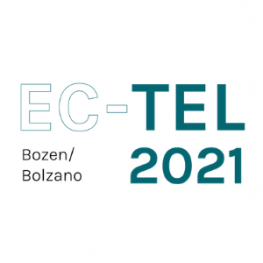Speakers
Christian Scheibenzuber
Ludwig-Maximilians-Universität, GermanyLaëtitia Pierrot
TECHNE EA 6316, University of Poitiers, FranceTomohiro Nagashima
Carnegie Mellon University, USAStart
22/09/2021 - 13:30
End
22/09/2021 - 15:00
Address
Zoom Room 1 @ EC-TEL Gather Town View mapPaper Session 3: Online and Virtual Learning Environments
Chair:  Olga Viberg
Olga Viberg
Harnessing Student Creativity to Design Fake News Literacy Training: An Overview of Twelve Graduate Student Projects
Christian Scheibenzuber[1], Marvin Fendt[1] and Nicolae Nistor[1,2] [1] Ludwig-Maximilians-Universität, Germany [2] Walden University, USA
Abstract: Fake news is an increasing problem for many areas of the social life, prominently for politics and democracy. Falling for fake news is largely due to deficient cognitive processing of online news, which we address as fake news illiteracy. One of the many ways of combating fake news consists of training media literacy with a focus on online news. Currently, there are few examples of fake news literacy training approaches. Against the background of a brief research overview on the cognitive processing of online news, we aim to generate and propose ideas for approaches to online fake news literacy training. To achieve this, we exploit the expertise and creativity of graduate students of educational sciences who were asked to design and carry out such pilot programs. This study provides an analysis and overview of 12 successfully conducted training programs, focusing on the cognitive processing aspects they address, intervention types, instructional designs, and the use of technologies. We conclude by pointing out productive directions of this development and suggesting corresponding educational technology development.
📄 Read More: https://link.springer.com/chapter/10.1007/978-3-030-86436-1_18
VLE Limits and Perspectives for Digital Integration in Teaching Practices. Lessons Learned from the French Basic Education Teachers’ Experience during the COVID-19 Pandemic
Christine Michel[1], Laëtitia Pierrot[1] and Melina Solari Landa[1,2] [1] TECHNE EA 631, University of Poitiers, France [2] DRDUNE- Réseau Canopé, France
Abstract: With the recent COVID-19 pandemic and general school closure, teachers had to teach remotely in an emergency. This study explores how this particular context enacts French Primary and Secondary Teachers’ technology integration, with a specific focus on the virtual learning environment (VLE), by exploiting 441 teachers’ answers to a survey and 13 in-depth interviews. The findings confirm previous studies: teachers intensified the practices they were already familiar with. But the need to keep a pedagogical link with students led them to more active, collaborative, and engaging learning forms. Our multidimensional analysis shows that teachers integrated technologies into their practices, according to two different logics: diversifying interaction with students and improving self-efficiency. VLE seems easier to use than other digital tools, yet it lacks the resources to fully support teachers’ professional development. Finally, this article presents three strategies to redesign the UX and open up the VLE to resource creation, to promote the integration of digital tools within teachers’ practices.
📄 Read More: https://link.springer.com/chapter/10.1007/978-3-030-86436-1_8
A Framework to Guide Technology-based Educational Studies in the Evolving Classroom Environment
Tomohiro Nagashima, Gautam Yadav and Vincent Aleven Human-Computer Interaction Institute, Carnegie Mellon University, USA
Abstract: Despite the drastic change to school environments due to the COVID-19 pandemic, it is still important that educational technology researchers conduct school-based research to understand the impact of technology in an authentic learning context, even remotely. However, the transition to remote research has made it challenging for researchers to collect classroom data, observe teacher-student-technology interactions, and facilitate study sessions. To explore how researchers can effectively plan and conduct technology-based educational studies in the new, evolving classroom research environment, we interviewed seven US teachers, investigating their perceptions of participating in remote classroom studies. Based on the findings and the authors’ experience of running classroom studies, we propose a framework that educational technology researchers can refer to when planning and conducting research in the evolving classroom research environment. Specifically, the framework informs researchers of several types of questions they can explore with teachers, students, and researchers themselves to be better prepared to address potential confusion, unexpected issues, and practical benefits in remote classroom research. Our work contributes by providing a practical guide for running technology-based research remotely, which may remain as a means of classroom research in the future. Some of the findings and the framework would also be applied to in-person classroom research setting.
📄 Read More: https://link.springer.com/chapter/10.1007/978-3-030-86436-1_16


